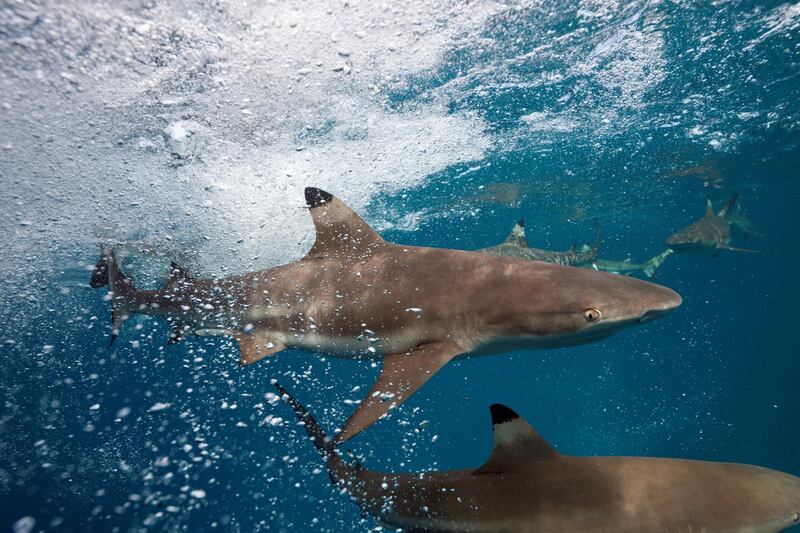Many years ago, while visiting one of the UAE's offshore islands, I had the pleasure of wading in shallow water while blacktip reef sharks, a metre or so in length, swam around me. Somewhat to my surprise, I wasn't too nervous, while the sharks – which rarely pose a danger to humans – ignored me, intent on chasing more fishy prey. I would have been far less relaxed had I been swimming in deep water. Ever since then, I've had a kind of proprietorial interest in the status of the 30 or so species of sharks to be found in the UAE's waters.
I was, therefore, delighted to read last week of the decision by the Ministry of Climate Change and the Environment to ban all fishing for sharks during the breeding season, which runs from February 1 to June 30. The new rule, linked to a 2014 decree that regulates fishing for and trading in sharks, should, if effectively implemented, have a significant impact on the conservation of shark species in these waters.
As apex predators, sharks play a key role in ensuring the health of the marine environment. Today there are 539 species of sharks and its relatives, like rays, worldwide. Their earliest ancestors appeared around 450 million years ago, making them one of the oldest forms of life on Earth.
Yet today, many shark species are under threat. More than 70 species, including some present in UAE waters, appear on the Red List of the International Union for Conservation of Nature (IUCN) with 15 of those classified as endangered and a further 10 species being critically endangered, meaning they are at risk of extinction.
Scientists estimate that up to 100 million sharks are killed every year. Over the past few decades, numbers of some species are believed to have declined by more than 90 per cent, with declines of 70 per cent not uncommon.
Sharks generally only reach maturity after many years and produce few young, compared to other fish. One reason for the sharp decline in populations has been the capture of young sharks before they reach maturity.
Within the UAE's waters, an additional problem has been the practice of catching sharks and then, while they are alive, cutting off their fins for export to Asian countries, where shark fins are popularly eaten. The shark is then dumped back in the water, where, unable to survive without its fins, it quickly dies or is eaten by other predators. That practice is now illegal, with ministry regulations stating that no sharks caught in the waters of the UAE can be exported in any form, although there are suspicions that some might still be conducting an illicit trade, despite the legislation.
The new ministry ban, though, is only part of a long-term strategy needed to protect our sharks and related species. More research is also required. About 25 per cent of all shark and ray species are classed by the IUCN as data deficient, meaning that not enough is known about them to assess whether or not they are under threat. We need to know more.
It’s good to know, therefore, that the ministry, through its Marine Environmental Research Centre in Umm Al Quwain, is taking a lead in encouraging such research.
Beyond that, as with so much else in terms of our environment, it’s important to recognise that many of the conservation problems we face have arisen not only because of the dramatic population growth over the last few decades, prompting a rise in local demand for fresh fish, but also because of the emergence of new patterns of trade.
In the past, our fishermen were not in contact with the Asian markets for shark fins. Today, having heavily exploited their own shark populations, these markets now seek to obtain their supplies from elsewhere, including the UAE.
The issue of conservation is very much a global one. It’s good, though, that here in the UAE, we’re increasingly taking steps to play our part.





